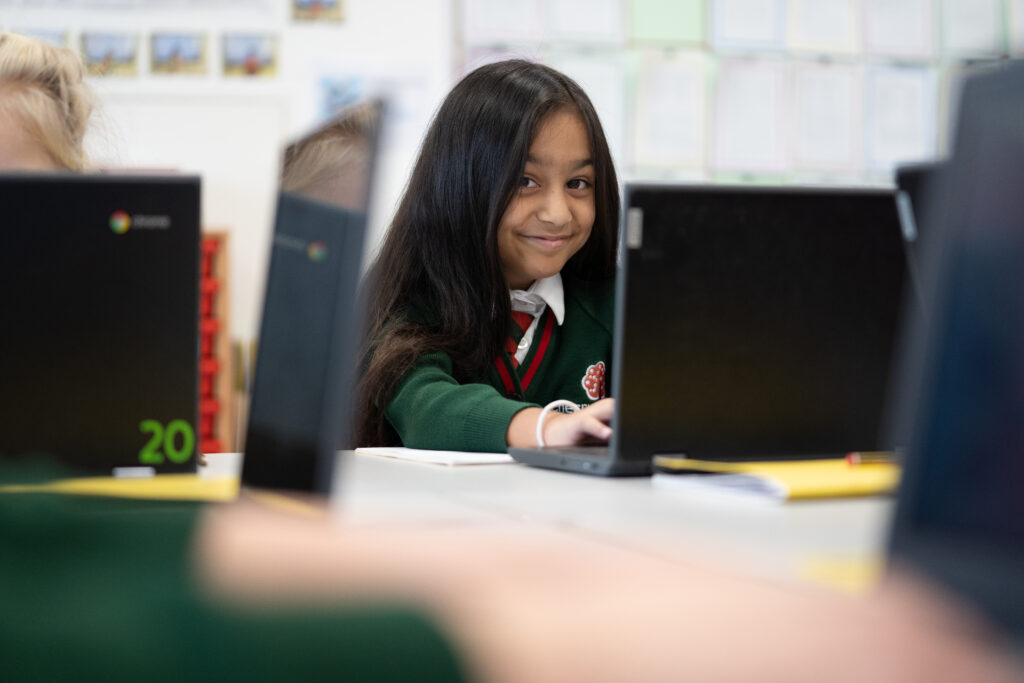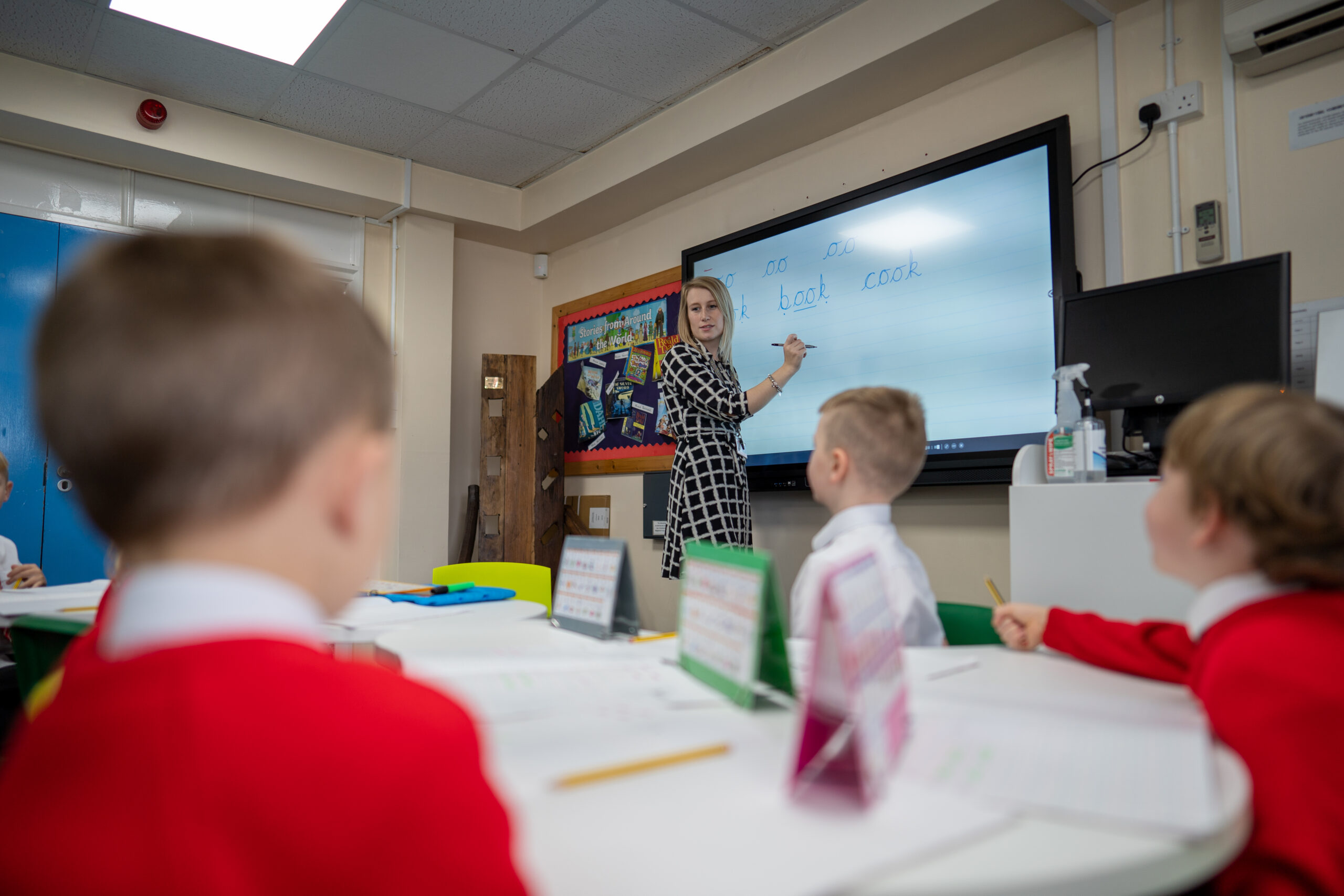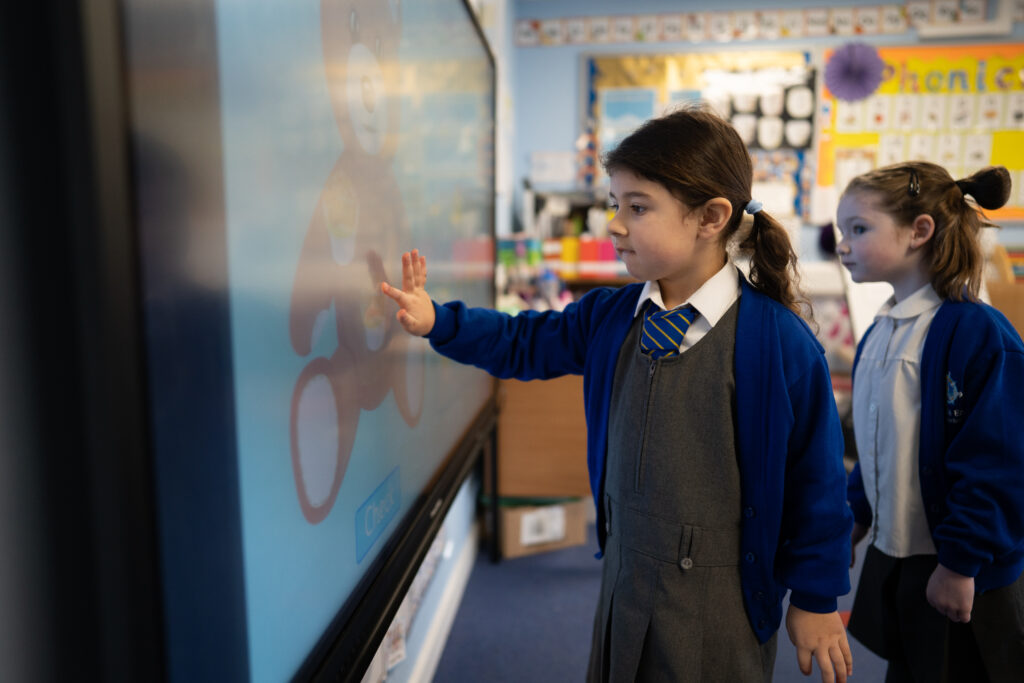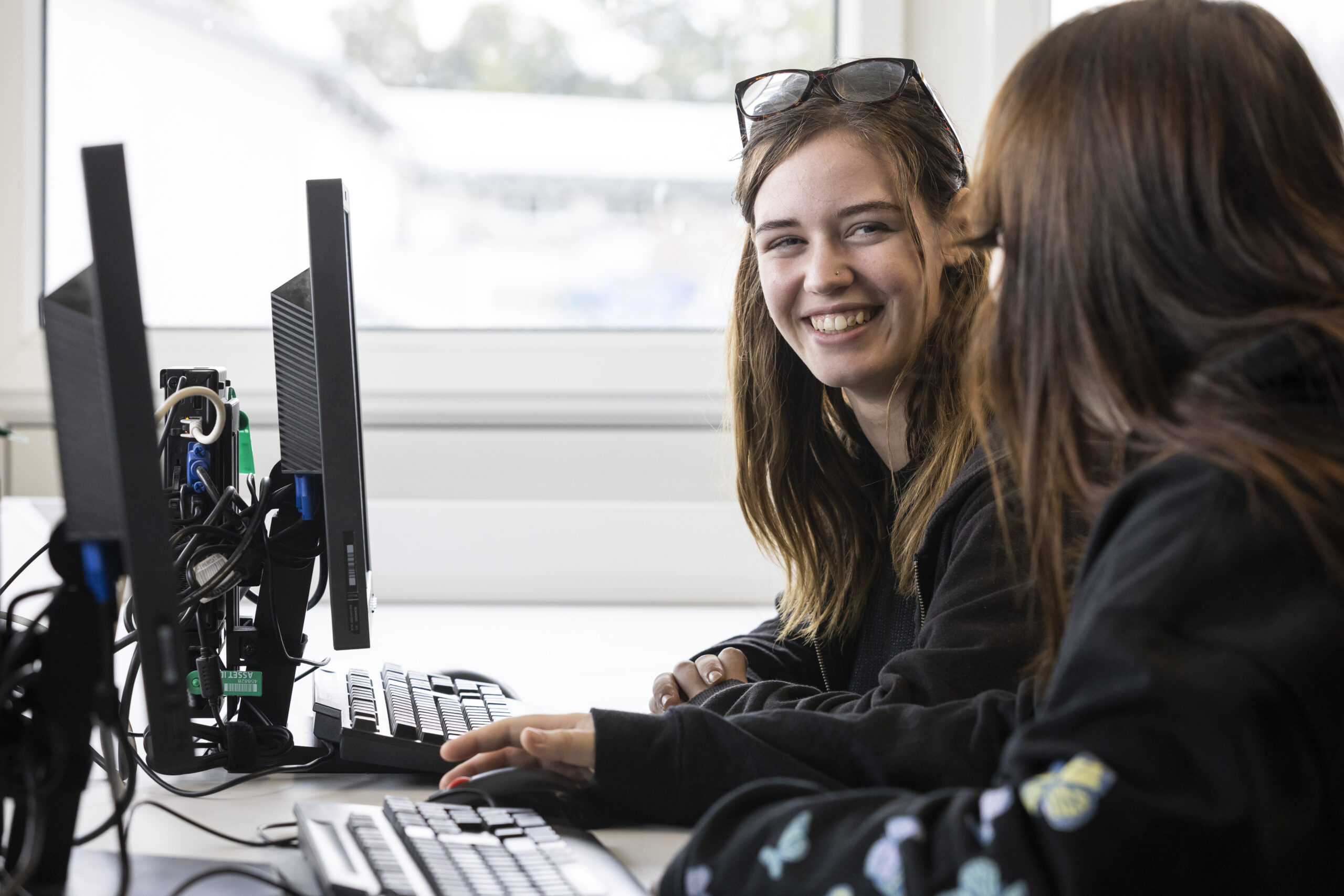Introduction
Advancements in digital technology are changing the way we live, learn, work and communicate. The digital strategy of Leigh Academies Trust is to develop an integrated digital ecosystem that harnesses these advancements across the various elements of the Trust, which in turn will produce mature, responsible digital citizens who are ready for the ever changing world of employment in a 21st century workplace.
In our academies, leaders, teachers and students work together to find and develop new approaches to learning by blending traditional and digital pedagogies. Digital technology becomes an integral part of the learning journey, creating opportunities for educational communities to extend learning beyond the classroom, to share information in a variety of engaging formats, and to efficiently review, reflect and respond to learning outcomes.
We believe that all learners should have access to digital technology; indeed, it is crucial to the principles that underpin our all-age curricular vision, which is based upon the International Baccalaureate (IB). We believe technology should not be used for technology’s sake, but should be implemented in lessons through a meticulously-planned approach to ensure its use is highly pertinent, varied and creative. Technology use will enhance the learning and progress students make as they journey through the curriculum, supplementing their learning through the development of their digital skills and digital literacy. At LAT, we are committed to ensuring students and teachers can employ the most appropriate tools for learning at the right time, including when they are not in the academy itself.
As part of our wider Vision 2030 plans, we aspire for each of our academies to develop these five key areas when it comes to their digital strategy:
- A digital community
- Integrated digital practice
- Digital skills
- Digital citizenship
- Innovation and creativity
Developing digital communities
A digital academy will not flourish unless the ethos is shared by the whole community and the community has access to the required digital resources. Digital use impacts every area of education and as such every member of the community has a role to play in supporting this approach.
Whilst each of our academies draw from our Trust Digital Strategy, it is also important that they understand how the principles impact their own policies, procedures and decisions. Therefore, the strategy is a collaboration between the Trust and its academies.
Providing access to suitable devices
To achieve this goal we must recognise the complexities of meeting the diverse needs of our community while maintaining operational and financial stability. We seek to balance the premise that one size does not fit all, while also maximising the benefits of a streamlined service wherever possible.
Effective and impactful use of technology
This heavy investment reflects the belief that technology can have a decisive impact on education. Therefore, we would expect to see technology used regularly and effectively, maximising the opportunities for our staff and students both in school and at home.
Developing a robust digital toolkit
We seek to provide the best resources possible, utilising subject and technological experts in deciding which software is suitable for our staff and students. We seek to maximise economic efficiencies wherever possible, all while ensuring we create safe environments while using software in regard to data protection and cyber security.
Digital leaders across the Trust
Within an academy we promote the development of a digital team. This team consists of teaching & learning leads, lead digital practitioners, and digital trainers. We seek to build a depth of digital understanding and practice through a diverse team in each academy. This is supported by our Trust central team, and by collaboration with other academies across the Trust.

Integrating digital practice
A digital approach is not isolated but should be integrated with teaching and learning to enhance existing practices and create new opportunities for students. The use of technology in the classroom will help develop digital skills by working in a 21st century manner. It will offer support for students and make learning more accessible. It will open up knowledge and experience by eliminating previous barriers.
Digital practice integrated with pedagogy and curricula
In our academies all educational policies and curricula should have appropriate and effective use of digital technologies woven throughout. Each department should be aware of and develop best practices within that area of focus. This practice is shared amongst the academy, LAT and the education community. This helps to ensure digital practice is not siloed but woven into all we do. Our aim is that digital technologies are embedded into all teaching and learning disciplines.
Digital access to learning resources
We expect every physical classroom to have a corresponding Google Classroom that is used effectively for communication, collaboration and accessing resources. All homework should be assigned digitally with provision being made for any student for whom digital access is not possible. In order to support working remotely and for revision purposes, teachers should use digital tools to provide additional support through online portals (such as Google Sites or Shared Drives) and develop instructional videos to support home learning.
Supporting accessibility and consistency
We have developed a list of LAT best practice guidelines in line with research and industry experience to help our staff improve their digital delivery. We also seek to apply educational research principles in the areas of cognitive science, cognitive load and metacognition into the design and delivery of our learning resources.
Creating career opportunities for our students
We don’t only think of today, but we also seek to use digital resources to prepare our students for tomorrow. We accomplish this by developing careers education through the use of online services such as Unifrog.
Developing digital skills
It is essential that we develop the digital skills of all staff and students so that they are able to engage effectively with technology today, and prepare for the world of work in the coming years.
Digital skills training
As we use Google Workspace in all our academies we strategically plan for all staff and students to be equipped with relevant knowledge and skills to utilise it. We have constantly supported our teaching staff to become Google Certified Educators, and more recently have adopted the Google Workspace Skills training programme for both staff and students to develop their skills in a live training environment.
Throughout the year we run both in person and virtual training sessions on the digital products we use as a Trust, and where possible make these recordings available on our learning portal.
It is our expectation that each academy would have a clear digital skills progression map for students to ensure they are upskilled for the software they use and so they are aware of the range of digital opportunities available to them.
Online training provision
We use digital platforms to support our staff development. This includes platforms such The National College, Chartered College and TES for online training, and platforms such as IRIS for staff CPD, whereby staff can record their own practice to reflect upon and share with others if they wish.
Being good digital citizens
When living in a digital age and encouraging staff and students to utilise technology effectively, it is essential that we also develop a community of good digital citizens. This will support the responsible and ethical use of technology, developing an understanding of the risks and benefits, and knowing to keep yourself and others safe.
Integrated into curriculum
We believe that this approach must be integrated into the curriculum rather than relying on one off events. These events can be helpful in supporting and enhancing the ongoing approach.
Developed alongside the IB
As part of the IB we actively promote Academic Integrity. With the recent advancements in Artificial Intelligence we aim to train and upskill our staff and students to use AI effectively and safely.
Being safe and secure online
We recognise the importance of strong online safety policies and practices. Each of our academies is National Online Safety accredited, and we seek to utilise available resources to support students and their families in the safe use of digital technologies.
We recognise the need for every member of our community to be knowledgeable around these issues and provide ongoing training for online safety, cyber security, data and GDPR.
Nurturing innovation and creativity
As technology continues to change the world we live in and will live in, we recognise the need to have innovative and creative approaches to how we use technology, but also to use technology to develop these skills in our students.
Improving and transforming tasks
We aim to not only use digital tools for improving established tasks, but also to look at how we can improve and create opportunities for staff and students. In particular we have a focus on reducing staff workload and improving wellbeing.
Inspiring students
Each of our academies is encouraged to develop a digital innovation project to inspire interest in technology and demonstrate its impact on different areas of society
Using creative tools
We seek to use creative tools such as Book Creator, Adobe Express, Canva, and Adobe Creative Cloud to enhance our creative expression and student voice.
Being digitally innovative
If you would like to know more about our strategy, please feel free to get in touch with us:

Emma Elwin
Academies Director

Leigh Academies Trust
Educational Resources
Site Information
Copyright 2022 © Leigh Academies Trust
Leigh Academies Trust, Carnation Road, Strood, Rochester, Kent, ME2 2SX – Leigh Academies Trust is a registered company, registration no. 2336587
Website by The LAT Web Team








